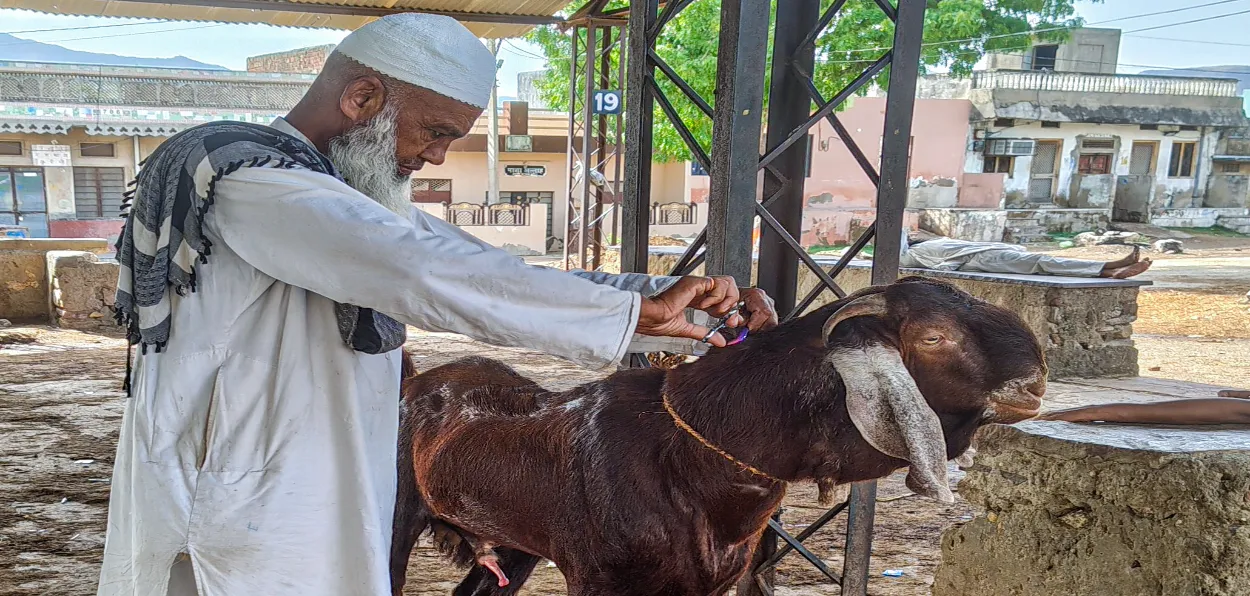
Amir Suhail Wani
Eid ul-Adha, the Festival of Sacrifice, is one of the most significant celebrations in the Islamic calendar. It honours the willingness of Prophet Ibrahim (Abraham) to sacrifice his son in obedience to Allah’s command. Over time, this profound spiritual narrative has evolved into the widespread practice of animal sacrifice, or Qurbani.
While rooted in a noble tradition, the ritual in many places has begun to overshadow the deeper moral, ethical, and spiritual dimensions of the occasion. Drawing on Islamic teachings, prophetic guidance, and scholarship, animal sacrifice can be minimized and yet not violate the essence of Eid ul-Adha.
Qurbani represents total submission and obedience to Allah. The act is symbolic—it signifies a believer’s willingness to give up personal desires, possessions, and even life itself in pursuit of divine obedience. Prophet Ibrahim’s unwavering readiness, mirrored by his son Ismail’s acceptance, exemplifies this spirit of sacrifice. The physical act of slaughtering an animal is only a representation of this larger, more profound spiritual reality.
The true philosophy behind Qurbani is rooted in values like selflessness, humility, and compassion. It is a reminder to put others before oneself and to extend care to those in need.
Unfortunately, in many communities, the ritual has become overly focused on the number or size of animals sacrificed. What should be a spiritual experience has, in some cases, become a social display or competition, undermining the act’s original intent.
Islamic teachings place a strong emphasis on compassion toward animals. The Prophet Muhammad instructed his followers to treat animals with kindness, especially during slaughter.
He said: “Verily Allah has enjoined goodness to everything; so when you kill, kill in a good way and when you slaughter, slaughter in a good way. So every one of you should sharpen his knife, and let the slaughtered animal die comfortably” (Sahih Muslim).
The Prophet also condemned causing unnecessary distress to animals, such as sharpening the knife in their presence or handling them roughly. Islam considers meat from animals subjected to cruelty as questionable or even unlawful (Makrooh or Haram).
Another important aspect of Qurbani is the distribution of meat. According to the Sunnah, the meat should be divided into three parts—one for the person offering the sacrifice, one for family and friends, and one for the poor. This ensures that the act benefits the broader community, not just the individual. Yet, the scale and manner in which sacrifices are conducted today often neglect this social dimension.
There is also ongoing debate among scholars about whether animal sacrifice is required for all Muslims. Some scholars argue that Qurbani is obligatory only for those performing Hajj, while others view it as a Sunnah Mu’akkadah (an emphasized tradition) for financially able Muslims.
A growing number of contemporary voices challenge the notion that local sacrifice is universally required. Islamic scholar Khalid Hussain, for instance, argues that neither the Qur’an nor the Prophet explicitly mandated Qurbani or Hajj for Muslims. He claims, “Allah, Qur’an and the Prophet have never ordained animal sacrifice on non-Hajis, but it is a myth created by clerics… In the Qur’an, there is no order for local Qurbani.”
While this view is not universally accepted and is debated by traditional scholars, it reflects a broader conversation about the need to re-examine practices in light of current ethical, environmental, and economic realities. In many cases, ritualism has taken precedence over meaning. The focus has shifted from sacrifice as an act of devotion to a measure of status -- judged by the number, cost, or size of animals.
Moreover, large-scale animal slaughter, often carried out with little regulation, raises serious animal welfare concerns. The cruelty inflicted during transport, handling, and slaughter violates the compassionate spirit of Islamic teachings. In addition, the environmental and logistical challenges of managing mass slaughter are significant and often overlooked.
To address these issues, several practical and ethical recommendations can help realign Qurbani with its true spirit. First, communities should re-emphasize the intention behind the sacrifice—submission to Allah and service to others, rather than focus on quantity. Educational efforts in mosques and Islamic institutions can help revive this understanding.
Second, it’s important to recognize that Qurbani is not obligatory for everyone. Those who are financially weak or have not gone to Hajj can fulfil the spirit of sacrifice through alternative acts of charity.
Third, humane treatment of animals must be a priority. Strict adherence to guidelines, including the use of trained personnel and certified facilities, must be strictly followed.
Fourth, Muslims should be encouraged to consider alternative charitable actions. Funds that would otherwise be used for mass sacrifice could be redirected to long-term poverty alleviation, education, healthcare, and other sustainable development initiatives.
These forms of charity often have a far greater and lasting impact than a one-time distribution of meat. Fifth, institutional solutions can play a key role. Islamic charities and community leaders can organize collective sacrifices or offer “virtual Qurbani” options, where donors contribute the equivalent cost of an animal to humanitarian causes. This reduces the number of animals slaughtered while still fulfilling the charitable objectives of the ritual.
The enormous financial resources spent on animal sacrifice each year—billions globally—could be partially redirected to more sustainable forms of giving. Projects that support food security, children’s nutrition, educational scholarships, or emergency relief would better serve the long-term needs of vulnerable communities. Such efforts honours the ethical and charitable goals of Qurbani while addressing real and pressing issues.
Eid ul-Adha should be a time of reflection, generosity, and true sacrifice, and not just ritual. By focusing on the deeper spiritual and ethical dimensions of Qurbani, Muslims can move beyond the surface and revive the values of obedience, compassion, and service to humanity.
ALSO READ: Morocco bans animal slaughter on Eid in view of drought
Minimizing unnecessary animal sacrifice, promoting humane practices, and investing in long-term charitable efforts are ways to honour both the letter and the spirit of this sacred tradition.
